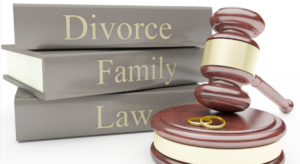Have you ever wanted to change your name? Then you aren’t alone. A growing number of people in the UK are changing their name, and for different reasons.
Doing so is perfectly legal as long as you aren’t doing it for fraudulent reasons.
It’s also relatively easy. All you have to do is visit the UK Deed Poll Office, which has helped over 136,000 people change their name over the last eight years.
The cost to submit a deed poll name change application is just £18.50, and if you get it in by 3 p.m. on Monday through Friday, it will be processed the same day!
Your new legal name is then guaranteed to be accepted by all relevant organizations and government offices (e.g. the HM Passport Office, banks, doctors, schools, and the Driver and Vehicle Licensing Agency), or you get your money back.
Not sure if you want to legally change your name? Here are some reasons you might consider it:
-
You dislike your current name
One of the most common reasons people change their name is they simply don’t like it. You didn’t choose your name, after all. Your parents did. And they may have chosen a name you wouldn’t have picked for yourself.
Maybe you have an obscure, made-up name that’s hard to spell or pronounce, and you’re embarrassed by it (think Elon Musk’s son X Æ A-12). Or maybe it’s painfully common like “John” and you prefer something more unique. Or perhaps your name has been co-opted by a brand or company that you want to distance yourself from (think Amazon’s voice assistant “Alexa”). Or maybe you’ve always gone by a nickname and you want to make it official.
Whatever the case may be, it’s perfectly fine to change your name out of personal preference.
-
You got married
Traditionally, women would take on their husbands’ names when they got married because they were considered to be under the husband’s protection and authority. Though this is no longer the case (at least legally), many women still choose to take on their husbands’ names, and so might you.
In other cases, a husband may want to take on his wife’s last name. Though this is far less common, it is also an option.
Alternatively, you and your spouse may want to adopt a new last name altogether. For example, you could hyphenate your last name with your spouse’s last name. This may be especially appealing to some same-sex couples who don’t feel comfortable taking on just one or the other spouse’s name.
-
You got divorced
Though some people choose to keep their last name after a divorce (e.g. to maintain a connection to their children’s last name), many don’t. Instead, they reclaim their maiden name or take on an entirely new name.
Why? Perhaps you want to sever the connection between you and your ex-spouse as much as possible. After all, if the relationship ended in divorce, you may not want to be associated with them anymore.
-
You want a more or less ethnic name
If you have an ethnic name, you may want to anglicize it so that it’s easier for others to pronounce or spell. For example, you might change the German last name “Bauer” to “Bower” or the Italian “Cucco” to “Cook.”
Perhaps you’re tired of correcting others, or you want to avoid being discriminated against. Unfortunately, some employers pass over job applicants whose names are different or hard to pronounce (though this is illegal).
On the flip side, you may want to reclaim your heritage and honor your family background by returning to an older, more ethnic variation of your surname.
It’s your right to change your name for any of these reasons.
-
You are transgender
In recent years, there’s been a sharp rise in individuals that identify as transgender. The Government Equalities Office estimates that there are somewhere between 200,000 and 500,000 trans people in the UK.
If you are one of them, you may want to change the name given to you at birth to reflect your new identity and preferred pronouns.
For example, you may want to change a masculine name to a female version of the same name (or vice versa), like “Joseph” to “Josephina” or “Georgia” to “George.” Or you may want to pick a new name altogether. Do whatever feels best.
-
You want to boost your personal brand or make a political statement
Lastly, some people choose to change their legal name to boost their personal brand or make a political statement.
For example, famous singer John Legend changed his name from John Roger Stephens because he wanted to be known by his stage name. Similarly, actor Vin Diesel changed his name from Mark Sinclair because Mark Sinclair didn’t sound tough enough to him.
In some cases, you may want to change your name to make a political statement. For example, Marvin Richardson legally changed his name to “Pro-Life” to support the pro-life movement, and PETA member Chris Garnett changed his name to KentuckyFriedCruelty.com to support the animal rights movement.
When it comes to changing your name, you can get as creative as you want.
Final thought
There are many reasons to legally change your name, and this is definitely not an exhaustive list. But you can let it inspire you to change yours if you feel so inclined. The point is that if you want to change your name, there is a way to do it.






Be First to Comment